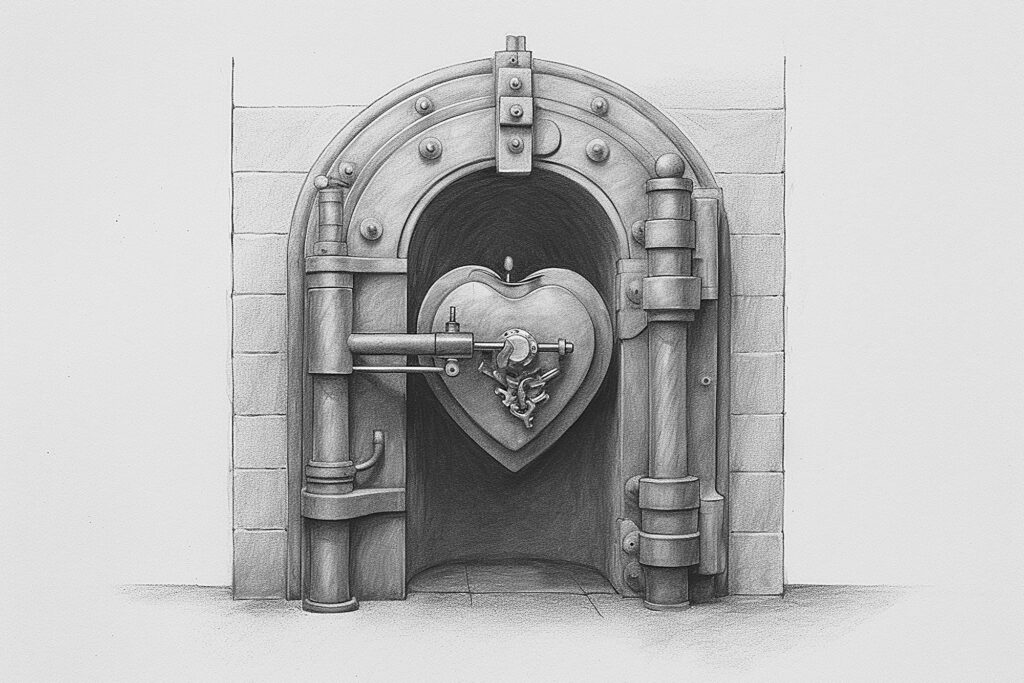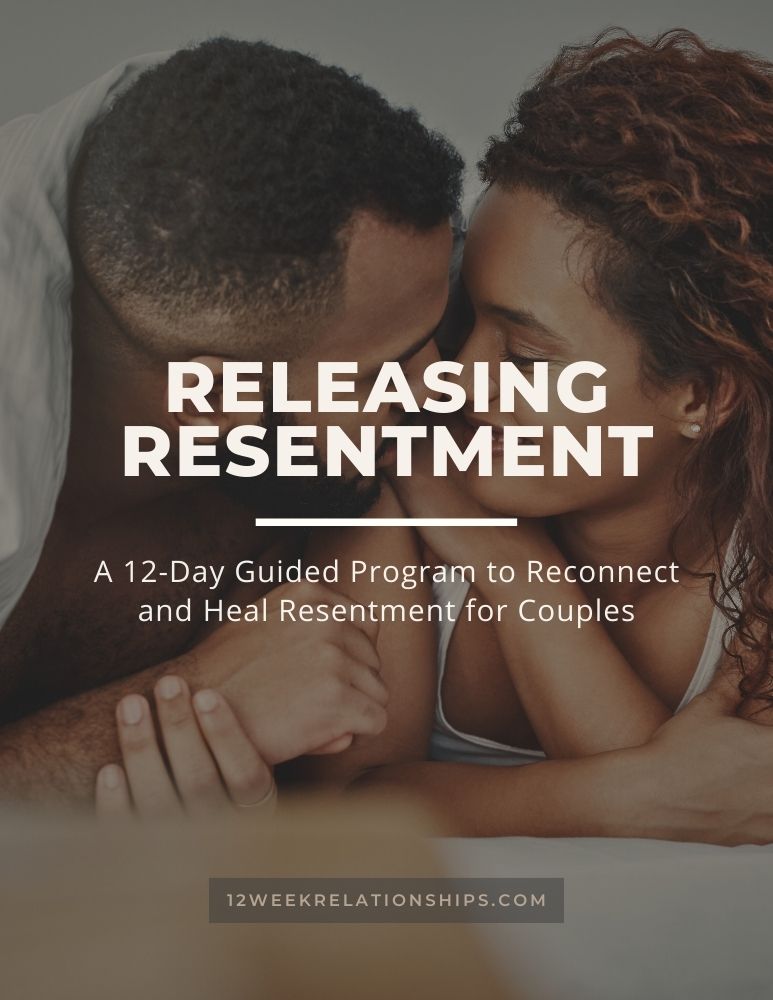It was back in college when I read "The Seven Habits of Highly Effective People" where author Stephen R. Covey introduced the concept of the "emotional bank account."
It was a brilliant metaphor.
Imagine your relationship is like a bank account where deposits and withdrawals shape its balance. Just as we strive to accumulate wealth, it's essential to nurture an emotionally wealthy bank account between spouses.
For the purpose of keeping this article simple and relatable, we're going to speak from the perspective of a romantic couple. But we'd say that the concept of an emotional bank account extends far beyond romance and marriage. This concept applies to every long-term relationship that we create.
Let's dive in...
Defining Your Emotional Bank Account
Think of your emotional bank account as a reflection of the respect, trust, and goodwill within your relationship.
Within the Super-Simple Relationship Method, the framework we developed for relationship coaching, we have a component that represents your emotional bank account.
We call it Regard.
Regard defines the trust, admiration, and respect that pulls you toward a relationship. Made simple, if you don’t trust or respect someone, you’re unlikely to have the Desire to maintain a relationship with them.
It would be fair to say that Regard represents your emotional bank account. We'll come back to the concept of Regard in a bit, for now let's continue defining the emotional bank account.
Just like a financial bank account, a healthy bank balance requires more deposits than withdrawals.
Within our emotional bank account, deposits come in the way of positive interactions, acts of kindness, and actions that demonstrate an alignment in Core Values. Withdrawals come in the way of negative interactions, self-serving behavior, and actions that demonstrate a misalignment in Core Values.
Let's look at some examples of these.
Deposits to Your Emotional Bank Account
In a marriage, deposits to your emotional bank account include ALL of your positive everyday interactions. For example...
- Offering emotional support after a hard day
- Invitations to spend time together
- Heartfelt compliments or praise
- Surprise activities or date nights
- Simple acts of kindness
But you can see how this concept extends outside of marriage and romance right?
I want you to think of a close friend or family member. Not a relationship that you feel "obligated" to maintain, but rather someone who you genuinely enjoy spending time with.
Arent you both looking for ways to serve the relationship? You invite each other out. You call each other to catch up. You're there to support one another.
These are all deposits that boost the positive balance of your emotional bank account.
Now let's go to the other side, let's talk about withdrawals.
Withdrawals from Your Emotional Bank Account
Withdrawals from your emotional bank account include ALL of your negative everyday interactions. For example...
- Disagreements and significant conflict
- Moments of frustration and anger
- Not making time for your significant other
- Minimizing the experiences of your spouse
- Failing to listen and empathize
- Apologies that lack sincerity
In short, anytime we're acting against the best interest of the relationship, we're taking a withdrawal from our emotional bank account.
Once again, this happens in all of our close relationships, doesn't it?
Your friend betrays you and never takes ownership of their action. Your family member continuously steps over your boundaries whenever they need something. These are all significant withdrawals to a relationship's emotional bank account.
The next question is what happens when the withdrawals exceed your deposits?
Maintaining a Negative Balance
If your bank account held a consistently negative account balance, the bank would simply close out your account.
Thinking of our relationships, it's normal to go through periods where we have more withdrawals than deposits. During these so-called "relationship storms" our emotional bank account might even be in the red for a time.
But this is NOT sustainable long term!
Just like the bank, it's impossible to maintain a relationship that consistently withdraws more than it deposits in return.
Correction. It is possible to maintain a one-sided relationship where withdrawals consistently exceed deposits. But it's going to come at the cost of your own physical, mental, and emotional health.
Now let's bring this back home to the concept of Regard.
Regard, Your Emotional Bank Account
Earlier, I mentioned that your Regard for someone is a great representation of your emotional bank account.
Let me explain why.
We help clients understand and implement the SSRM (Super-Simple Relationship Method). You can think of it as a framework that answers the question, "What does a healthy relationship look like."
Inside of the SSRM is the concept of Desire (hence why I've capitalized Desire throughout this article). Desire is your want for a relationship, ANY relationship.
The KEY to maintaining Desire is healthy Regard.
Meaning, you're going to struggle to maintain your Desire for a relationship with someone that you don't hold in high Regard. After all, how do you want a relationship with someone that you don't trust, respect, or admire?
We tie Regard closely to the idea of "attraction" because it's hard to be attracted to someone that you don't respect, even when they're physically attractive. And by the same token, it's hard to want ANY relationship with a person that you don't hold in high Regard.
I say all of this because I want to bring it back home to the concept of the emotional bank account.
Every time your spouse (or someone close to you) acts against your best interests and values, YOU LOSE REGARD. Withdrawals erode the Regard you have for someone. With enough withdrawals, your sense of Regard can be damaged beyond repair, or even worse, replaced with contempt.
In that place, your emotional bank account is so far in the negative that you'll simply want nothing more to do with this person.
Without Regard, you'll have no Desire to maintain a particular relationship. Knowing that withdrawals are affecting your Regard, it's critical we focus on making deposits. But how many deposits do we need to be making to keep a relationship healthy?
What's a Healthy Ratio?
Knowing the importance now of maintaining a healthy emotional bank account you might be wondering, "What's the appropriate ratio of deposits to withdrawals?"
The Gottman Institute conducted research on this saying that a couple needs at least 5:1 positive to negative interactions. Five deposits for every withdrawal. They went on further to say that the best relationships had a ratio closer to 20:1.
That said, we think that specific numbers might detract a bit from the overall purpose. There are two things here that are important to understand, the first is simple.
ONE. You need far more deposits than withdrawals.
In order for a relationship to remain healthy, it needs far more positive interactions than negative interactions. Trying to put a number on these interactions is a bit of a moot point since each interaction is different in its weight or magnitude. Instead, just think of it this way. In order for a relationship to remain healthy, it needs to provide a synergistic benefit to both people. Maintaining the relationship is providing both people with far more emotional benefits than it is cost.
SECOND. Negative interactions are far more memorable than positive ones.
We have to recognize that our brains are hardwired to place far more weight on a negative interaction than a positive one. Because it's so easy to focus on negative interactions, we need positive interactions to far outweigh them.
In short, put your focus on MAKING DEPOSITS!
Conclusion
If you want to maintain a healthy long-term relationship, both people in the relationship should focus their efforts on making frequent daily deposits into their emotional bank account.
This is how two people can strengthen the Regard they have for one another, which in turn increases their Desire to maintain the relationship!











